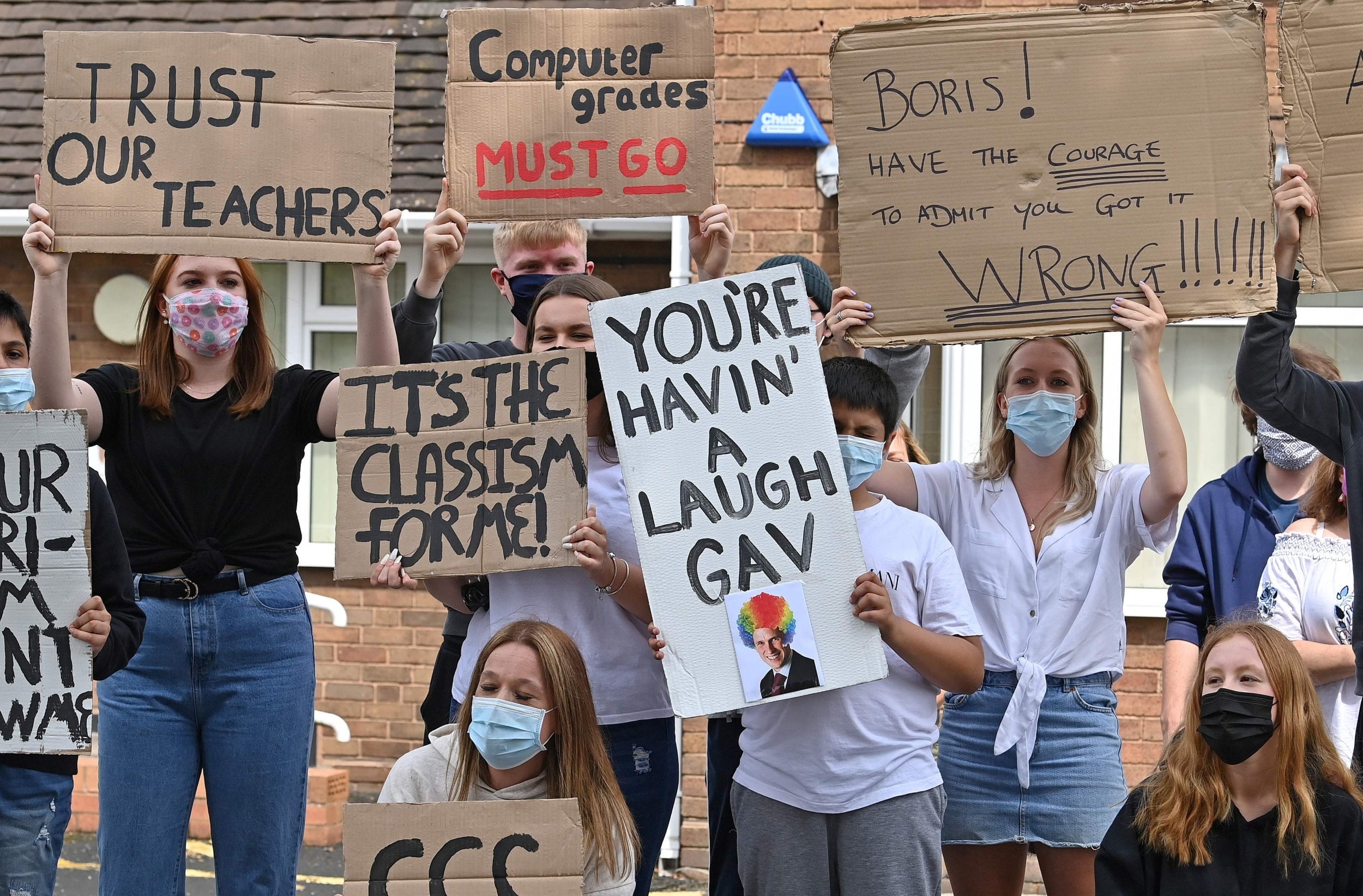A-level results: Around 15,000 students now make first-choice university offer with teacher grades
Marks can be used after government U-turn

Your support helps us to tell the story
From reproductive rights to climate change to Big Tech, The Independent is on the ground when the story is developing. Whether it's investigating the financials of Elon Musk's pro-Trump PAC or producing our latest documentary, 'The A Word', which shines a light on the American women fighting for reproductive rights, we know how important it is to parse out the facts from the messaging.
At such a critical moment in US history, we need reporters on the ground. Your donation allows us to keep sending journalists to speak to both sides of the story.
The Independent is trusted by Americans across the entire political spectrum. And unlike many other quality news outlets, we choose not to lock Americans out of our reporting and analysis with paywalls. We believe quality journalism should be available to everyone, paid for by those who can afford it.
Your support makes all the difference.About 15,000 students who were originally turned down by their first-choice university have now met their offer with teacher-assessed grades, Ucas data has revealed.
In a U-turn on Monday, the government announced that students would be able to use these centre-assessed grades (CAGs) following an outcry over a controversial moderation process which saw tens of thousands of grades lowered.
On Wednesday, Ucas said it had received grades from four major awarding bodies for 160,000 students whose marks have been upgraded using teacher assessments.
Of these, an estimated 15,000 – almost 10 per cent – have now got the grades to go to their first-choice university after having been rejected with their earlier moderated marks.
About 100,000 people whose grades given out on results day were lower than their CAGs had already been accepted into their first-choice university, said Ucas, the admissions service.
Many universities have said they will honour people’s places if their teacher assessments meet their offer, after it was announced that students could use CAGs instead of moderated marks that were lower.
However, some institutions said they would need to wait until they received grades from Ucas to confirm whether students still have a place for this year.
Certain courses – including medicine and dentistry – have been singled out as ones where students may have to defer, while some universities have said they may face capacity constraints this year.
Speaking about the new Ucas data, the organisation’s chief executive, Clare Marchant, said: “It’s clear from this data that universities have already exercised flexibility when making their original confirmation decisions and have looked closely at the backgrounds of students.”
She added: “We are all focused on supporting the 15,000 students who now meet their conditions of entry and may want to make a different decision and take up a place at their original first-choice university.”
Students protested and called for Gavin Williamson, the education secretary, to resign after A-level results day last Thursday.
About 40 per cent of calculated A-level grades had been lowered by an exam regulator.
The algorithm that was used – to moderate the process of awarding grades and avoid grade inflation under teacher estimates – came under fire over its perceived unfairness and the way it appeared to particularly penalise bright children from disadvantaged schools.
Mr Williamson has apologised for the “distress” caused by the abandoned policy, which was intended to give fair results to pupils who could not sit exams because of the coronavirus crisis.
The education secretary said there had been “broad political consensus” across all parties that a standardisation model was needed for teachers’ assessments of grades after the disruption caused by Covid-19.
GCSE students will receive their results on Thursday. These will be teacher-assessed grades, after the algorithm was scrapped.
Additional reporting by Press Association
Join our commenting forum
Join thought-provoking conversations, follow other Independent readers and see their replies
Comments